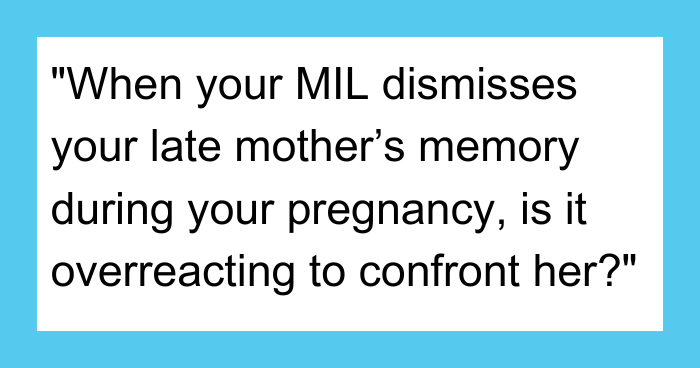AITA for Confronting My MIL After Her Insensitive Comment About My Late Mother?
The 23-year-old revealed that grief and family dynamics clashed at that time during major life moments, and this expectant mother experienced just that. On a family dinner, to her pregnancy, her MIL gave a toast that shifted from joking to painfully insulting. The MIL ignored the fact that OP lost her mom, less than a year before, calling herself the “only grandma” the baby would have.
After the confrontation with her MIL, OP was very emotional, excused herself from the dinner and left. Hubby told her she should come home and apologized on his mommy’s behalf, but it didn’t stop there, as the MIL then even texted that those words remain, that she doesn’t care about OP’s grief. Well, OP hit the nail not only on her MIL behaviour but on also the defensiveness or non-support from the husband side.
When couples expect a baby, their families rally together to offer support and share in the excitement

But for this mom-to-be, bringing her in-laws along for the ride meant enduring insensitive comments and thoughtless behavior
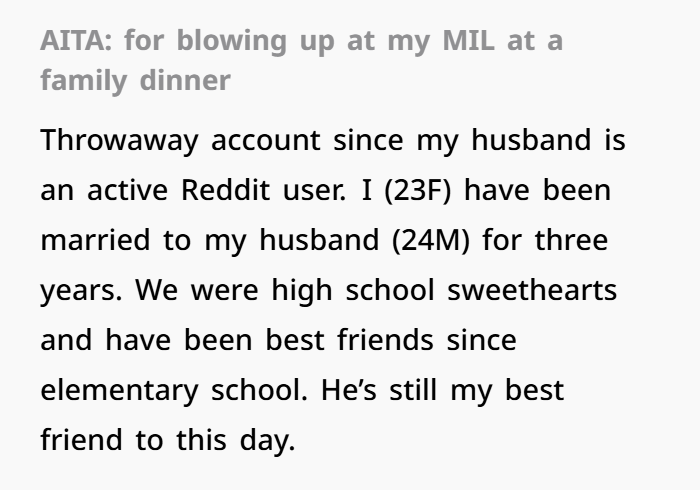
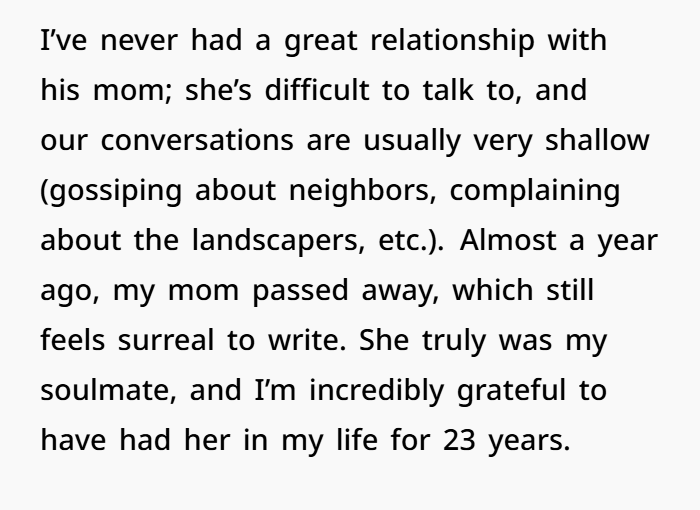
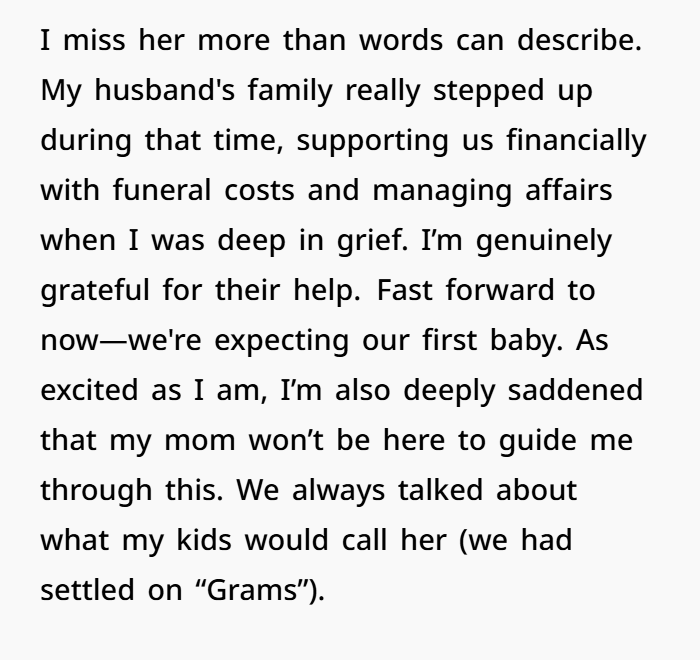

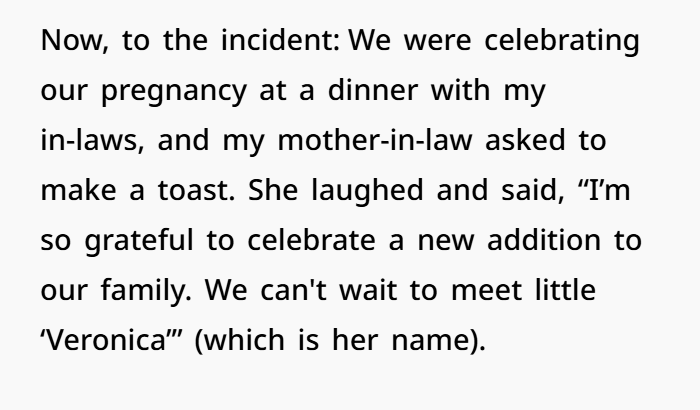
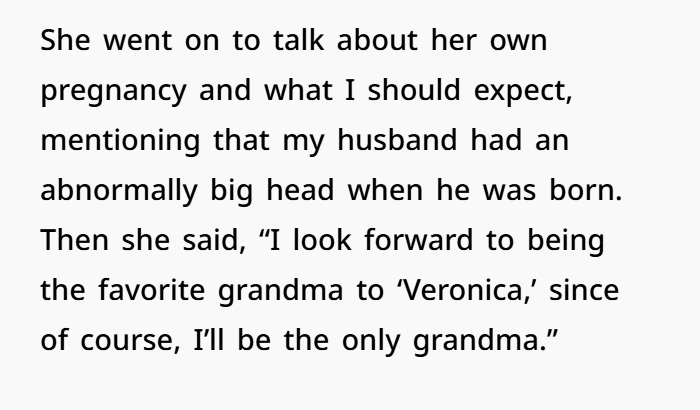
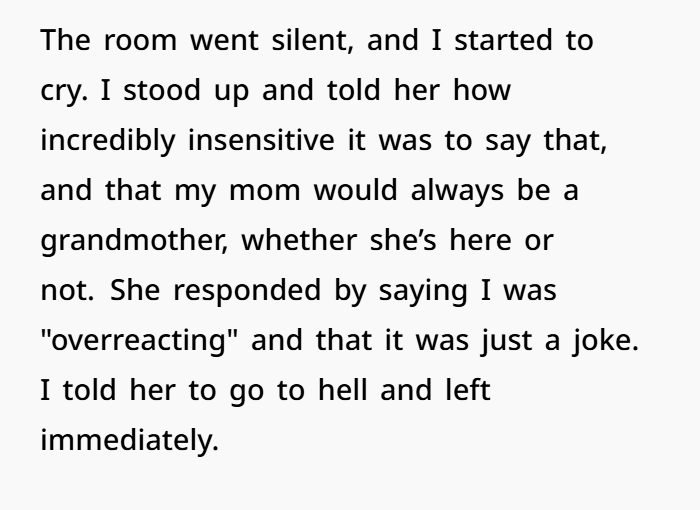
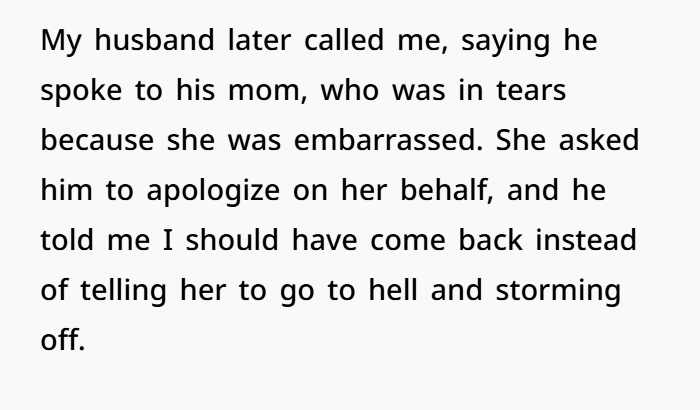
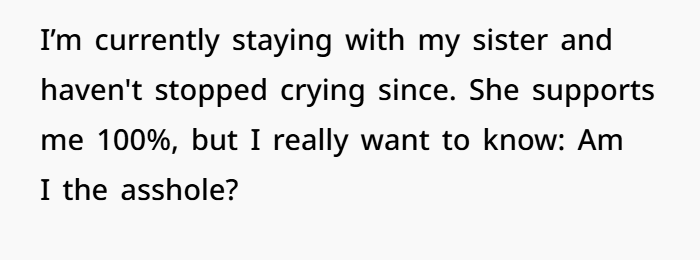

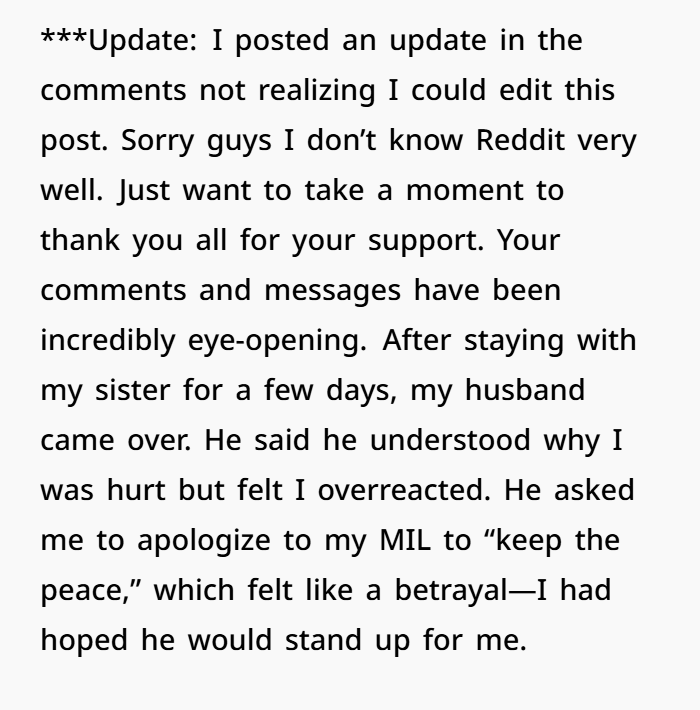
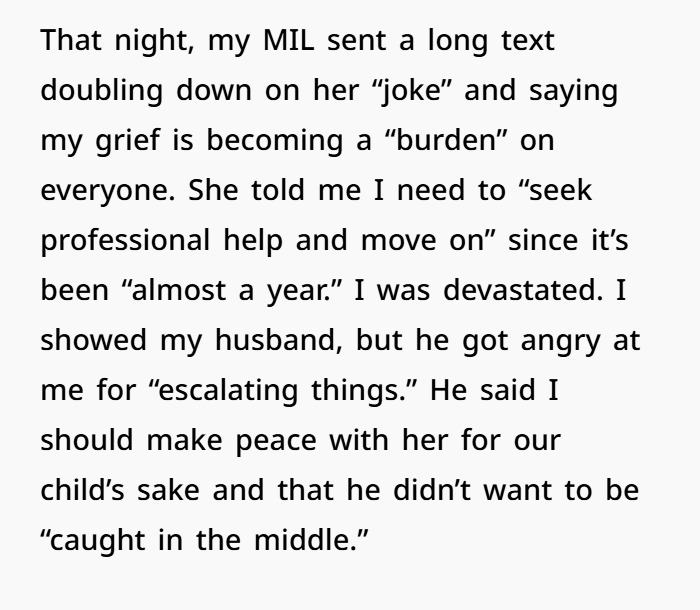
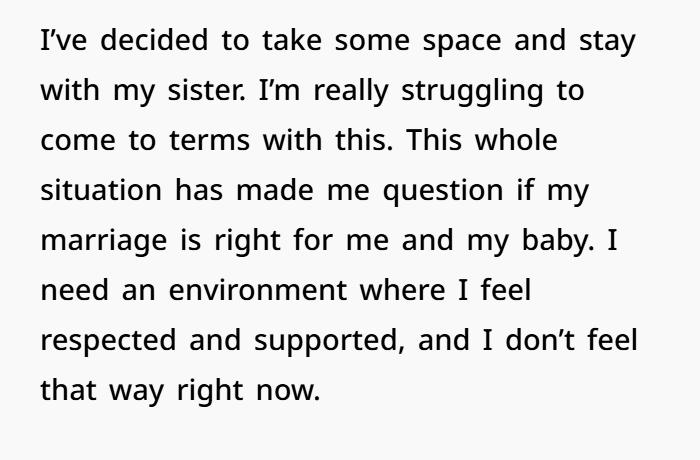
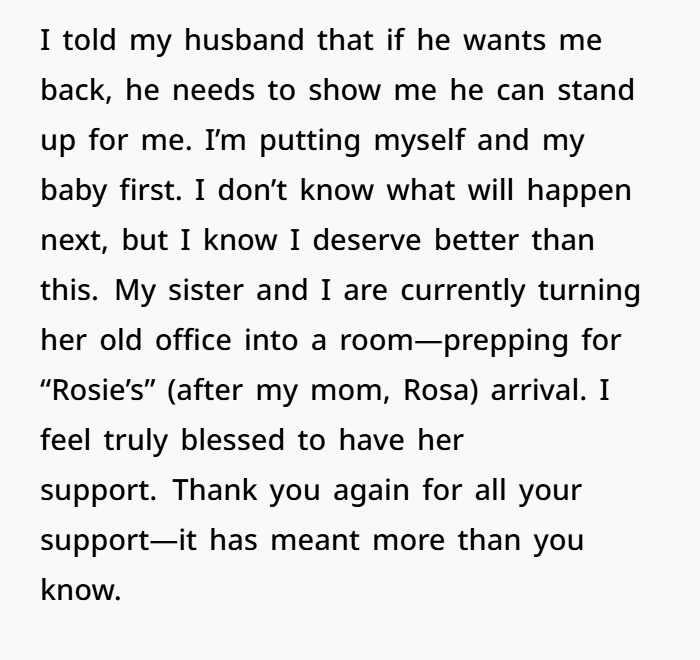

Navigating Grief, Boundaries, and Family Support
1. The Weight of Grief in Life Milestones
The unravelling of a parent is one of the most emotionally debilitating experiences and events such as marriage, pregnancy or the birth of a child amplifies the absence. OPs mom not only passed away but she was also OP’s soulmate and had pictured being a prominent part of her grandchildren’s life.
MIL claiming OP’s mom is “just a grandmother” was not only a terrible joke — it invalidated OP’s grief on a deep level. Grief often comes in waves, especially throughout major life moments (such as Thanksgiving and the holidays), and the American Psychological Association adds that this is a time when empathy and a gentle touch are vital from loved ones.
2. Balancing Boundaries and Cultural Expectations
This comment by the MIL highlights a well-known fault line with family systems, and that is the blurred boundaries as well as signalling that needs also can be incongruent. Actually calling herself “the only grandma” was more than just a little rude—it was presumptive, insulting to OP’s mother who had passed, and dismissive of her role in her baby’s life.
This will need to change going forward — OP needs strong boundaries. The absent grandmother attitude of MIL does not make her daughter lose the right to get her daughter to know her grandmother.
3. The Husband’s Role: Support vs. Neutrality
OP’s partner is a huge source of her pain. Even though he apologized on behalf of his mother, he put the responsibility back on OP instead of his mother by saying that they wanted to “keep the peace.” Instead he downplayed OP’s grief by calling it an “overreaction” and enabled the MIL.
I got some one on one time with a couple of marital experts from The Gottman Institute, and they advised that when dealing with in-law conflict, partners need to build alliances based on who the partner protects better, not who makes excuses for lousy behavior, and that when the chips were down, one’s partner should feel like their emotional safety comes first. Avoiding a clear position can make tru

4. Addressing MIL’s Insensitivity
And the MILs follow up text saying how that making her grief a “burden” proves right just how unaware she is of the op’s emotions and just how selfish she is. To imply that OP needs to “move on” and graciously seek assistance weaponizes her grief and stirs contention.
The MIL must own her behavior and apologize. But, if she does not, to protect her own sanity and her child OGOP is entirely justified in limiting contact.
5. Steps for OP Moving Forward
- Establish Boundaries with MIL:
OP can communicate her expectations clearly and firmly, outlining what behaviors are unacceptable and how future interactions should be handled. - Seek Supportive Counseling:
Grief counseling or couples therapy can provide OP with tools to process her emotions while helping her husband understand the importance of his role in supporting her. - Prioritize Emotional Well-Being:
Creating a nurturing environment for herself and her baby is essential. If that means maintaining distance from MIL or reevaluating the marriage, those steps are valid and necessary. - Honor Her Mother’s Memory:
Integrating her mother’s legacy into her child’s life—like naming her baby after her mother—can provide OP with a sense of connection and healing.
Pretty much everyone who read her story said the daughter-in-law did nothing wrong
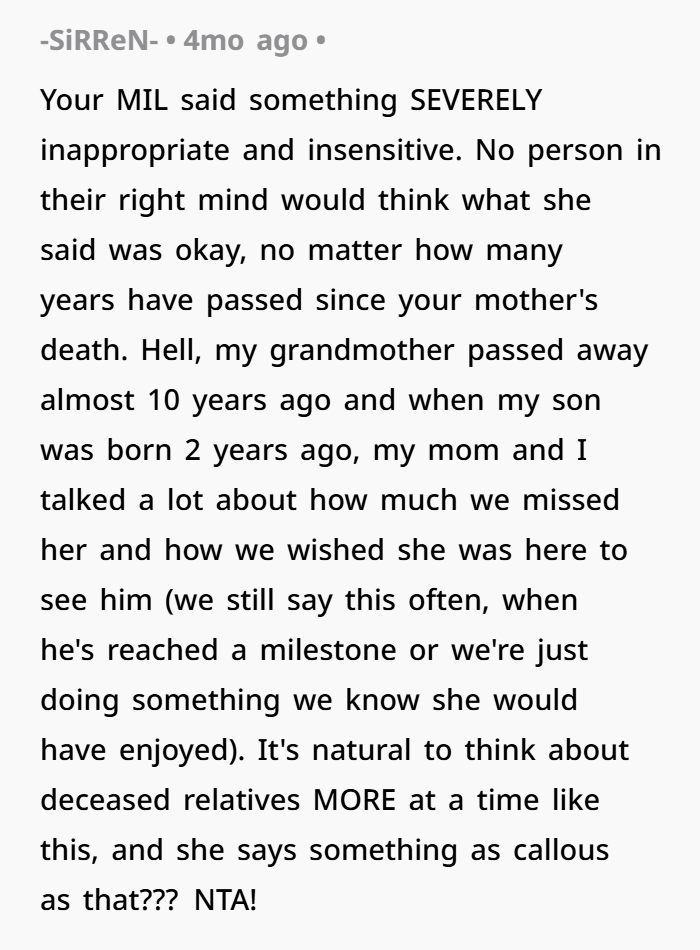

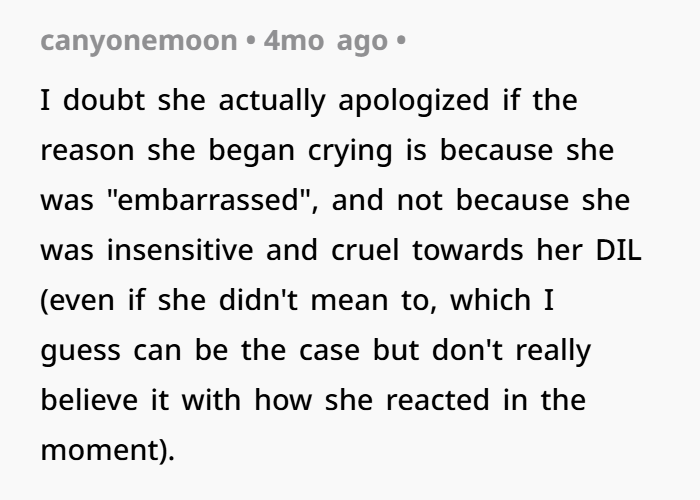
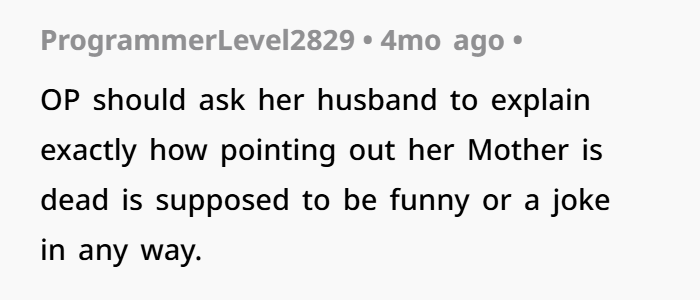
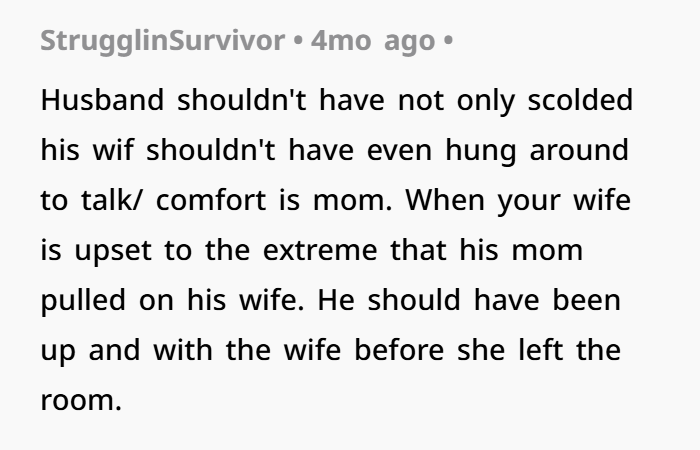
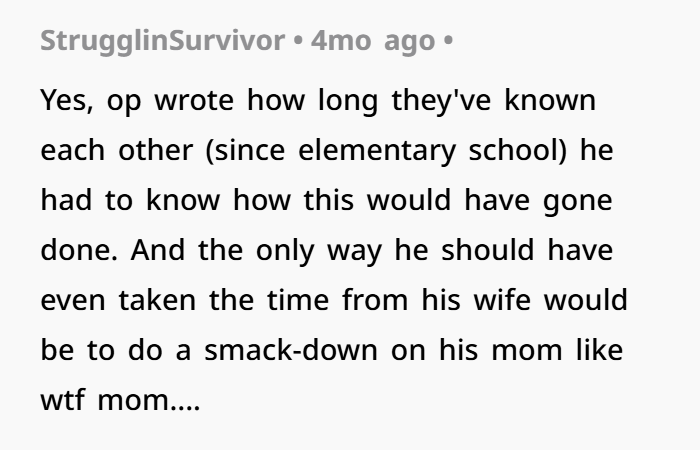
OP is by no means the a-hole for putting her MIL in her place over a remark about her dead mother. It’s a genuine grief and there is nothing over the top about her grief, so being dismissed so callously is a huge boundary crossing by her MIL. Great that her husband wants to ‘keep the peace’ (understandable) but not really tackling the disrespect part and finding their partner in crime insufficient.
Instead, OP — by setting boundaries — can confidently move forward, knowing she is creating a safe space for herself and her baby. She can move to reconciliation provided her MIL and husband are ready to bend over backwards to understand their folly.

